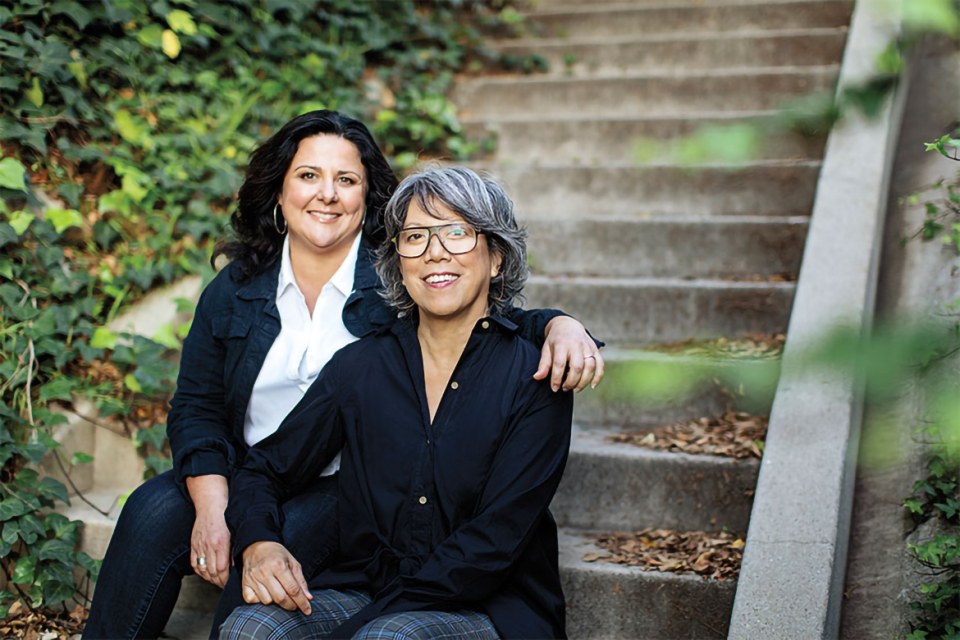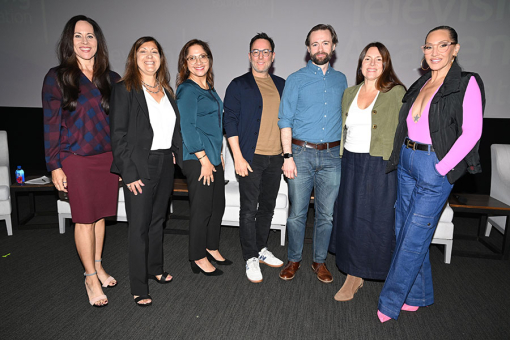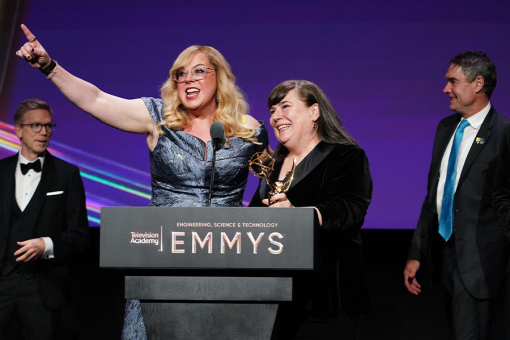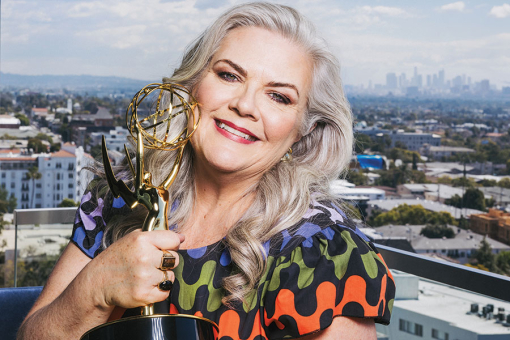When Jennifer Arnold was four or five, she told her mother she wanted to be a director. And when Patti Lee was growing up, she regularly did her homework in front of the television set.
Arnold did become a director, and Lee now works on TV sets instead of in front of them, as a director of photography.
They met when UCLA alum Lee shot Arnold's 1999 UCLA master's thesis film, Maid of Honor, which screened at Sundance and aired on HBO. They became a couple in 2000 and wed in 2014.
They've collaborated on shorts and on documentaries such as A Small Act, which earned Arnold a Humanitas Prize and, for both, nominations for a News & Documentary Emmy as producers. Their most recent project was the 2017 indie comedy Fat Camp.
In 2018 Lee became the first woman to be Emmy-nominated for cinematography for a multicamera series, as D.P. for Superior Donuts; she was recently D.P. for Bob Hearts Abishola and the Mad About You reboot.
Arnold's directing credits include The L Word: Generation Q, Shameless and Single Parents.
They spoke with emmy's Libby Slate.
What is it like to collaborate with your partner?
Lee: We've been together for a long time. We both have a very strong work ethic, and we're both very visual people. I know what she likes and dislikes.
She knows me so well, too. Working with Jennifer on A Small Act, listening to her and figuring out the stories, made me a better cinematographer.
Arnold: I can turn and give her a look and say nothing, and she'll know exactly what I want and be able to make an adjustment. And I'm willing to take some risks, knowing that I can count on her.
Jen, what's your approach to directing? How do you handle shows as dissimilar as, say, American Horror Story: Apocalypse and Younger?
Arnold: The tones are different, but directing is directing. So much of it is being able to think on your feet, read the room, make people comfortable and be a leader.
You're still trying to accomplish something visually interesting, stay within the feel of the show, get the actors to trust you, be collaborative with the crew and understand what the showrunner needs.
Patti, what's your style as a cinematographer?
Lee: I like things that are more natural. In sitcoms, some producers want things brighter, because to them, comedy isn't funny unless it's bright. I like something that has depth — shadows and light.
How did it feel to be the first woman Emmy-nominated for cinematography for a multicamera series?
Lee: It was amazing and also nerve-wracking. Right before, my agent had called me and said, "All these people are inquiring about you." And I said, "Great, we'll set up meetings."
Then none of the meetings transpired, and I kept getting passed up for jobs that I really wanted — I was so disappointed. So, the nomination was a kind of validation.
You're not only women working in fields that are overwhelmingly male, but lesbians. How has that affected your careers?
Lee: I don't think it has really been an issue. I've been very open about who I am. When we were in Kenya [for A Small Act], we definitely had to not be out, though, because it's a crime there.
Arnold: I never felt like I was discriminated against for being gay in Hollywood, but I definitely was because of gender. Today, when representation on television is so much better, it's still so important for people like Patti and me to be there and bring our voices to the industry, to be out and to be interesting.
This article originally appeared in emmy magazine, Issue No. 6, 2020.
More articles celebrating Pride Month.











